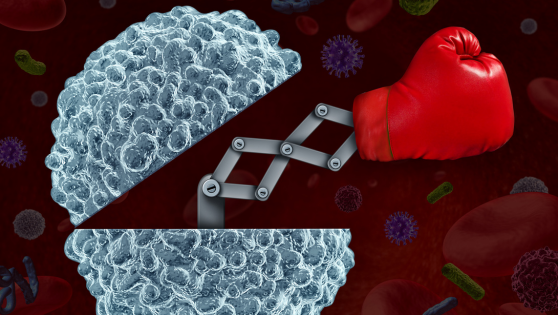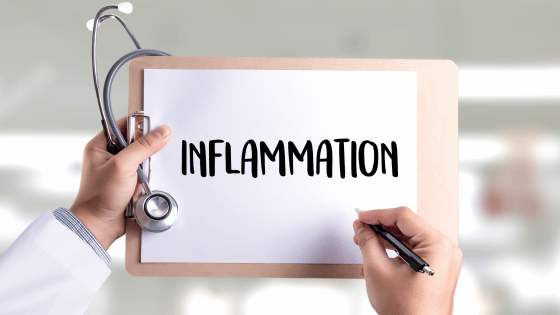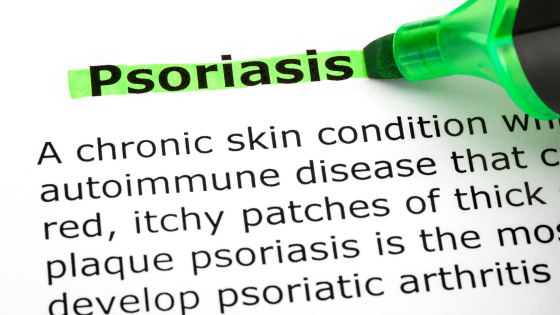In our modern world, we are constantly surrounded by an invisible enemy: toxins. From the air we breathe to the food we consume and the products we use, our bodies are subjected to a relentless assault of harmful substances. While we may be aware of the potential dangers posed by toxins, many of us remain unaware of their cumulative effects on our health and well-being.
Today, we delve deep into the concept of “tox-sick” – a term used to describe the toxic overload our bodies experience – and shed light on the hidden dangers that lurk in our everyday lives. By understanding the impact of toxins on our health, we can take proactive steps to minimize exposure and protect ourselves from the insidious effects of tox-sickness. Share on X So, grab a cup of tea, sit back, and let’s embark on a journey to uncover the truth about the toxins that may be making you tox-sick.
Toxins come in various forms, but at its core, they are harmful substances generated by living organisms that pose a significant threat to human health. Nature harbors a diverse range of toxins, which are often by-products of metabolic processes. These toxins serve specific purposes for plants and animals alike. Plants produce toxins as a defense mechanism against pests, while animals utilize toxins for capturing prey. Additionally, certain naturally occurring elements and minerals also fall into the category of toxins.
To provide a clearer picture, here are a few examples of natural toxins:
- Mercury
- Petroleum
- Snake Venom
- Caffeine
- Arsenic
- Smoke
In our daily lives, humans are surrounded by an abundance of environmental toxins. From consuming processed foods to using commercial beauty products and household cleaners, we unknowingly expose ourselves to a multitude of hazardous chemicals and toxins. Share on X Disturbingly, these harmful substances are not always clearly labeled on product packaging or ingredient lists, making it challenging for us to identify and avoid them. Given the hidden nature of toxins, it becomes our responsibility to exercise caution in our consumption habits and actively educate ourselves about the dangers we encounter on a daily basis. By taking these proactive steps, we can better safeguard our health and well-being in an increasingly toxin-laden world.
Toxins encompass a wide array of categories, each presenting potential risks we encounter on a daily basis. Let’s explore the primary categories that are likely to be part of our everyday lives:
Chemical Toxins:
These include both organic and inorganic substances that pose health or environmental risks when ingested, inhaled, or absorbed through the skin. Examples of chemical toxins encompass methyl alcohol, carbon monoxide, and mercury, among many others.
Physical Toxins:
Physical toxins refer to chemicals, hormones, or drugs that disrupt the natural biological processes within our bodies. Silica, dioxins, secondhand tobacco smoke, lead, and asbestos are common examples of physical toxins that can impact our well-being.
Biological Toxins:
Biological toxins are secreted by living organisms, including bacteria, fungi, plants, and animals. Pathogenic organisms are also considered to be toxic. Two well-known examples of biological toxins are tetanus and diphtheria, which can cause severe health complications.
Radiation:
Certain types of radiation rays can be detrimental to living organisms. Microwaves, for instance, have been theorized to potentially damage DNA and contribute to the development of cancer. Additionally, gamma rays emitted from X-rays and certain medical treatments, when exposed to high doses, can lead to DNA mutations and impair cellular mechanisms.
By understanding the various categories of toxins we encounter daily, we can become more aware of the potential risks associated with our surroundings and take proactive measures to minimize our exposure and safeguard our well-being.
How Do Toxins Affect Your Body?
As you can infer from the name, toxins by definition are elements which negatively affect the body. They obstruct the natural biological processes and harm our anatomy in different ways.
The effects of toxins can be felt at the molecular level all the way to our emotional well-being:
- They can kill the useful bacteria that are located in the gut.
- They can slow down the DNA synthesis.
- Toxins can prevent the oxygen binding with red blood cells.
- They can block several essential enzymes.
- They don’t let the minerals and vitamins absorb into the bloodstream.
- Headache
- Stress
- Diarrhea
- Constipation
- Skin Rashes
- Allergies
- Irritation and many more problems.
They can cause:
Although the liver, kidneys, and intestines are meant to detoxify the body, an overload of toxic material will cause them to fail, which then leads to more serious health conditions. When you reach this level of toxicity, the toxins look for other ways to get out of the body and result in rashes, acne, and fatigue. [
Inflammation – the Real Cause of All Disease
When toxins start destroying your body, the immune system reacts and the result in inflammation. Inflammation is known to be the root cause of all the disease, both big and small.
Some health experts link inflammation to all other health conditions, even early aging, because it puts your body into an imbalance which leads to other health problems. If you have arthritis, it is simply the joints’ inflammation. Likewise, the inflammation of arteries leads to heart disease. According to some researchers, inflammation is the result of a hyperactive immune system. When the toxins attack the body and begin to accumulate, the immune system reacts.
As dire as this may sound, inflammation is not harmful in all cases. It is simply the response of our body against the infections that are caused by toxins, viruses, and bacteria. However, there is no good reason to encourage inflammation either.
There are two different types of inflammation, chronic and acute inflammation:
- Chronic Inflammation – is dangerous and more long-lasting. It can prolong to months and even years.
- Acute Inflammation – starts very quickly and ends within a few days.
Certain foods can aggravate inflammation; similarly, many foods are also known to be anti-inflammatory. Special care should be taken to avoid and cure inflammation as it is the mother of all diseases.
The Dangers of Inflammation
As previously mentioned, inflammation can lead to several serious and fatal diseases and health issues. It is often referred to as the silent killer.
- Joint inflammation can cause severe pain and lead to significant joint damage.
- Inflammation of blood vessels can result in clot formation, impede blood flow, and increase the risk of heart attacks.
- Research conducted by Harvard University in 2014 suggests that teenagers with inflammation have an elevated risk of cancer, and chronic inflammation in adults is also associated with an increased cancer risk.
- Prolonged inflammation can disrupt sleep patterns, leading to either decreased or increased sleep duration.
- Lung inflammation can narrow air passages, cause fluid accumulation, and result in breathing difficulties, potentially leading to asthma, chronic bronchitis, and infections.
- Gum inflammation can lead to periodontitis, affecting dental health and increasing the chances of dementia and heart disease.
- Inflammation negatively impacts bone health and promotes bone loss.
- Inflammation affects the skin, contributing to acne, allergies, skin rashes, and premature skin aging.
- Brain inflammation has been linked to depression.
- Inflammation can make weight loss more challenging by affecting metabolism and hunger signals, leading to increased calorie consumption and slower calorie burning.
Signs Your Liver May Be Toxic
The liver is known to be the major detoxifying organ of the body. It is one of the most important organs, and its proper and smooth functioning is essential in order to stay healthy. It’s basically your detoxifier.
It converts harmful and poisonous toxins into safe waste that our body secretes in the form of sweat, urine, and other waste materials. It works tirelessly to keep the body clean and healthy. However, it may also get damaged and slow down in its performance. When this happens, the liver is no longer able to expel the toxins from the body. Being lipid-soluble, the toxins accumulate in the fatty tissue and stay there.
There are many indicators that show if your liver is toxic. Let’s have a look at some of these:
Jaundice
When your liver starts slowing down, it fails to eliminate the toxins from the body. Additionally, a bile pigment named bilirubin also begins to accumulate in the body. Its abundance in the bloodstream alters the skin color and turns it yellowish. The fingertips and eyes can also turn yellow which makes this condition much more serious than a simple “skin discoloration.”
Skin Sensitivity
Another indicator of liver toxicity is the sensitivity of the skin. It feels itchy and the condition can get worse with time.
Dark Urine
The liver problem will make your urine dark in color because of the excess of bilirubin in the blood. This is a prominent factor that points towards liver damage.
Fatigue
If you feel fatigue and weakness, you might have a problem with your liver. The reason is that your body has to work harder when the liver is not functioning properly. As a result, it gets tired. This one is a vague symptom because fatigue can occur due to a number of reasons other than liver toxicity.
Diarrhea
As the liver helps greatly in digestion, its improper functioning can cause diarrhea. Additionally, loss of appetite, fluid retention, vomiting, and acid reflux are some more symptoms of liver disease.
If you notice any of the above-mentioned signs, call your doctor for a full evaluation.
Is A Toxic Liver Making You an Emotional Train Wreck?
Liver malfunctioning doesn’t only cause physical damage, it also severely affects your emotions. As mentioned above it makes you feel tired all the time and disturbs the sleep cycle which can raise your anxiety and cause irritability. Prolonged fatigue, illness, and vomiting can make you feel sad and you may lose hope of ever getting healthy again. The added stress of having a malfunctioning liver can prolong your illness since some studies show that liver toxicity is related to stress. Your sick liver can make you depressed, angry, and frustrated, and you may end up being an emotional train wreck.
Liver detoxification is crucial to regain your physical health as well as your emotional health. There are numerous ways to cleanse your liver and you should find an appropriate protocol in order to enhance your health, gain emotional stability, and regain proper body functioning.
If you are looking for more tips and support, join me over on my group page, The Village – A Natural HEALing Community, to get tons of information and tips to help you take your HEALTHY EATING and ACTIVE LIVING to the next level.
REFERENCES:
MORE RELATED POSTS:








+leave a comment . . .